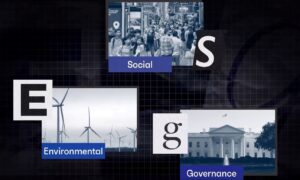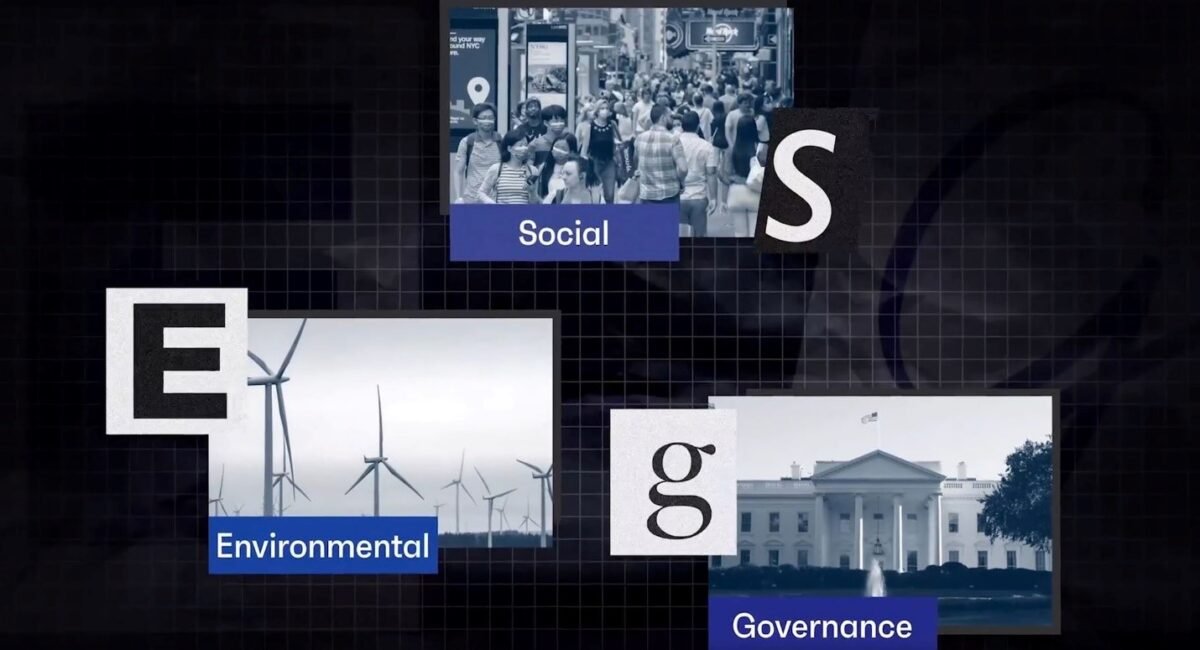Political Backlash Is Upsetting Corporate Enthusiasm for ESG, DEI, Survey Suggests

Environmental, social, and governance (ESG) initiatives have been political and partisan from their inception, but with some 30 states pushing legislation to curb these efforts, there are signs that corporate enthusiasm for ESG is starting to wane.
According to a recent survey (pdf), most corporate social impact teams—a term that overlaps with ESG and DEI (diversity, equity, and inclusion)—have five or fewer members and are increasingly stressed while seeing low buy-in from the C-suite.
The Association of Corporate Citizenship Professionals (ACCP) recently released its 4th annual survey of these teams, which was conducted in April and included responses from 149 companies.
“The survey results show a profession experiencing continued instability and change which may hinder its ability to successfully maintain momentum toward the goals of positively impacting society and meeting key stakeholder expectations,” ACCP stated.
The vast majority of respondents said responsibilities had increased while resources had not, resulting in 61 percent saying teams are working longer hours and 50 percent experiencing burnout.
“Corporate social responsibility” teams tend to have broader responsibilities than ESG and DEI teams, including organizing volunteer activities of employees, but at least a third of respondents said the departments were bundled together, while a third of the companies had separate departments for these initiatives.
According to the survey, the perceived commitment from executives to ESG was 44 percent, while their understanding of what that entailed was only 39 percent.
Environmental sustainability was the top priority for the majority of the companies at 56 percent, with K-12 education following at 53 percent. Racial justice and equity came in at 44 percent, and gender equality at 40 percent.
The survey showed that companies are increasingly demanding measurable success from these departments, which were under increased scrutiny from executives, while they experienced “continued instability and change” with department head changes, turnover, and layoffs.
Almost half the teams (47 percent) wanted to see more buy-in from leadership, and 67 percent wanted more headcount for the teams.
The report noted that executive awareness and interest in ESG may have been temporarily affected by recent political “backlash.”
Backlash
Partisan efforts to promote or push back against ESG have not been subtle.
“There is undoubtedly a rise in anti-ESG sentiment in the [United States],” wrote HSBC analysts earlier this month. “In our view, this falls along mostly political lines and is isolated to the [United States].”
The survey noted a decrease (37 percent to nearly a quarter) of North American funds that say sustainability is a primary or secondary objective, and 44 percent saying their reasons for an ESG have become weaker in the past year.
Political pressure in this area has risen on both the federal and state levels.
President Joe Biden is currently taking his “Bidenomics” achievements on a campaign tour across America, touting the high government spending in energy and infrastructure and the jobs that investment will create. In just one industry, reports determine this will force automakers to invest heavily in order to meet regulatory requirements by converting two-thirds of their production into electric vehicles. While it may create new jobs, they come with a hefty price tag—an estimated $7 million to create one $50,000 “green” job, by one calculation.
“Sustainability” turns up more than 141,000 results in a LinkedIn job search, while “diversity” returns more than 223,000 results, and a recent Wall Street Journal piece linked Bidenomics to great numbers of new college grads finding employment in ESG and DEI departments, noting also an increase in college degrees in this realm.
Meanwhile, states have been fighting DEI and ESG in both education and business. A number of think tanks have published “model bills” to remove DEI in education, and state legislators have been using them.
About half the states in the nation have introduced or approved legislation to curb DEI in some manner, whether removing government funding for such institutions, or banning DEI offices in schools outright.




